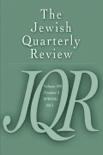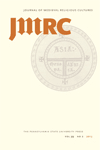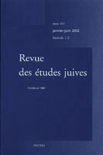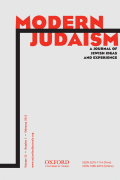
Studia Ceranea
Scope & Guideline
Cultivating Academic Excellence in Cultural Studies
Introduction
Aims and Scopes
- Byzantine Studies and Historical Analysis:
The journal focuses on the Byzantine Empire's history, including political, social, and cultural dynamics, providing insights into its complex interactions with neighboring cultures and religions. - Linguistic and Philological Approaches:
Research often includes philological studies of ancient texts, examining the evolution of language and its impact on cultural identity, particularly in relation to Slavic languages and literature. - Religious and Theological Discourse:
There is a significant emphasis on the theological implications of Byzantine Christianity, including studies on saints, heresies, and the role of the Orthodox Church in shaping societal values. - Cultural and Ethno-Historical Perspectives:
The journal explores the cultural identities and practices of various ethnic groups within the Byzantine sphere, including Slavic, Jewish, and other communities, reflecting on their historical narratives and contributions. - Archaeological and Material Culture Studies:
Articles often delve into archaeological findings that illuminate aspects of everyday life, religious practices, and the material culture of the Byzantine Empire and its successor states.
Trending and Emerging
- Interdisciplinary Approaches to Identity Construction:
There is a growing trend towards exploring identity formation among different groups in Late Antiquity, particularly the interactions between Christians, Jews, and Gentiles, as well as the implications of these interactions on contemporary understanding of cultural identity. - Health and Medicine in Historical Contexts:
An emerging theme is the examination of health, illness, and medical practices in historical texts, highlighting the interplay between medical knowledge and cultural beliefs in Byzantine society. - Environmental and Agricultural Studies:
Research on the agricultural practices and environmental conditions of the Byzantine Empire is increasing, reflecting a broader interest in how these factors influenced economic and social structures. - Gender Studies in Byzantine Contexts:
There is a notable rise in the exploration of gender roles, particularly concerning female monasticism and the societal status of women in Byzantine and post-Byzantine cultures. - The Role of Material Culture in Understanding History:
Studies focusing on artifacts, architecture, and everyday objects are gaining traction, as scholars seek to understand how material culture informs historical narratives and social practices.
Declining or Waning
- Military History of Byzantium:
There has been a noticeable decrease in the number of papers focusing on military campaigns and strategies of the Byzantine Empire. This shift may reflect a broader interest in cultural and theological studies over purely military narratives. - Traditional Hagiography Studies:
Research centered on the lives of saints and hagiographical texts appears to be waning, suggesting a potential shift towards more secular or diverse cultural studies. - Classical Antiquity Comparisons:
The comparative studies between Byzantine and earlier classical antiquity have become less common, as the journal seems to be focusing more on the medieval and early modern periods instead.
Similar Journals

Palaeobulgarica-Starobalgaristika
Illuminating the Intersections of History and CulturePalaeobulgarica-Starobalgaristika is a distinguished academic journal published by the Bulgarian Academy of Sciences, focusing on the rich history and cultural heritage of Bulgaria and the surrounding regions. With an ISSN of 0204-4021 and an E-ISSN of 2603-2899, this journal serves as an essential platform for researchers, historians, and scholars, providing a forum for the dissemination of innovative research and interdisciplinary studies. The journal has established its significance in the field by achieving an impressive Q3 ranking in History and boasting a Scopus rank of #702 out of 1760 in the Arts and Humanities category, placing it in the 60th percentile. Operating within the timeline of 2019 to 2024, it strives to explore various facets of Bulgarian history, cultural identity, and archaeological findings. While currently not an open-access journal, Palaeobulgarica-Starobalgaristika remains committed to enhancing the academic conversation within its field, making it an invaluable resource for those dedicated to understanding and preserving Bulgaria's historical narrative.

Britannia
Connecting Scholars to the Rich Tapestry of HistoryBrittannia is a prestigious journal published by Cambridge University Press that serves as a cornerstone for scholars and enthusiasts in the fields of Archaeology, Classics, and History. With its ISSN of 0068-113X and E-ISSN of 1753-5352, the journal has been committed to disseminating high-quality research and innovative studies since its inception in 1970, addressing vital topics that span cultural, historical, and archaeological dimensions. As a hallmark of academic rigor, it maintains a Q1 ranking in Classics and History and a Q2 ranking in Archaeology (both Arts and Humanities, 2023), reflecting its impact and significance in these disciplines. Although not an Open Access journal, it provides invaluable content for researchers, professionals, and students alike, ensuring that vital insights into ancient civilizations and cultural heritage resonate well beyond the pages of each issue. With upcoming publications scheduled through 2024, Brittannia continues to be an essential resource for anyone invested in the legacies of the past.

JEWISH QUARTERLY REVIEW
Unveiling the Rich Tapestry of Jewish ExperienceJewish Quarterly Review, published by University of Pennsylvania Press, is a distinguished academic journal that delves into the multifaceted realms of Jewish culture, history, and religious studies. With a rich publication history dating back to 1953 and an impressive track record of rigorous scholarship, this journal maintains a Q2 ranking in key categories such as Cultural Studies, History, and Religious Studies in 2023, placing it among the top-tier journals in its field. The ISSN number 0021-6682 and the E-ISSN 1553-0604 ensure that its scholarship is widely accessible and traceable in academic databases. While the journal is not open access, it remains an essential resource for researchers, professionals, and students seeking in-depth analysis and perspectives on Jewish thought and heritage. The JQR is known for its editorial commitment to enhancing understanding and dialogue across cultural and historical contexts, making it an invaluable asset for anyone engaged in Jewish studies and related disciplines. With its headquarters in Philadelphia, PA, the journal continues to foster scholarly engagement and critical discourse on Jewish identity and experience through its carefully curated articles and reviews.

Journal of Medieval Religious Cultures
Exploring the Divine: Unraveling Medieval Beliefs and CulturesJournal of Medieval Religious Cultures, published by Penn State University Press, stands as a vital resource for scholars in the fields of History and Religious Studies. With its ISSN 1947-6566 and E-ISSN 2153-9650, this journal provides a platform for high-quality research focused on the intersections of religion, culture, and society during the medieval period. Its current impact factor underscores its relevance and citation frequency in academic circles, solidifying its position in the Q3 quartile for both categories as of 2023. The journal's commitment to fostering scholarly dialogue makes it an essential read for researchers, professionals, and students alike, exploring topics that shape our understanding of medieval religious practices and beliefs. Although it does not offer open access, the journal ensures that its contributions are accessible through various academic libraries, facilitating valuable insights into a pivotal era of history. Explore the latest findings and engage with leading scholarship published from 2014 to 2024 at Penn State University Press.

Church History and Religious Culture
Exploring the Intersections of Faith and HistoryChurch History and Religious Culture is a reputable academic journal published by BRILL, focusing on the intricate interplay between history and religious practice. With an ISSN of 1871-241X and an E-ISSN of 1871-2428, this journal serves as a vital platform for scholars and students alike, fostering a deeper understanding of the multifaceted nature of religious traditions through a historical lens. Situated in the Netherlands, the journal is notable for its extensive chronological coverage, having begun its publication journey in 1912 and continuing to present impactful research well into 2024. While it currently holds a Q4 classification in both History and Religious Studies, its commitment to high-quality scholarship ensures relevance and engages a wide readership. Readers are invited to explore an array of research that not only reflects on past narratives but also contributes to contemporary discussions within the fields of history and religious studies, highlighting the enduring significance of faith and belief systems in human society.

ZEITSCHRIFT FUR RELIGIONS-UND GEISTESGESCHICHTE
Unveiling the Tapestry of Human Experience Through Religion and ThoughtZEITSCHRIFT FUR RELIGIONS-UND GEISTESGESCHICHTE is a prominent academic journal published by BRILL, focusing on the intricacies of religious and intellectual history. Since its inception in 1929, this journal has provided a key platform for scholarly discourse, offering insights into the historical evolution of religious beliefs and philosophical thought. Although it currently holds a Q4 ranking in the fields of History, Philosophy, and Religious Studies according to the 2023 category quartiles, it serves as an important resource for researchers and students alike who are engaged in these disciplines. With an ISSN of 0044-3441, the journal strives to foster academic dialogue and critical analysis, contributing to the understanding of how religious and philosophical ideologies shape human experience. The journal is based in Leiden, Netherlands, and while it does not currently offer open access, it supports the academic community by providing essential research articles that are invaluable for those exploring the intersections of faith, culture, and thought.

REVUE DES ETUDES JUIVES
Exploring Jewish Identity Through Multidisciplinary LensesREVUE DES ETUDES JUIVES, published by PEETERS, stands as a vital platform for scholarly discourse in the realms of Cultural Studies, History, Literature and Literary Theory, and Religious Studies. Based in Belgium, this journal, bearing the ISSN 0484-8616 and E-ISSN 1783-175X, has been faithfully chronicling research since its inception, with comprehensive coverage spanning from 1967, 1969, and several periods thereafter until 2023. Although categorized in Q4 quartiles across its fields—showing a diverse yet niche presence—it provides an invaluable space for emerging voices and established scholars to explore Jewish studies in a multidisciplinary context. Despite its compact impact factor and Scopus rankings reflecting its emerging status in the academic community, the journal is committed to fostering dialogue on the cultural and historical aspects of Jewish identity, offering a unique opportunity for researchers, professionals, and students to engage with contemporary and historical issues of Jewish significance. As a non-open access resource, it appeals to those seeking rigorous academic inquiry supported by Peeters' esteemed publishing acumen.

Vestnik Pravoslavnogo Svyato-Tikhonovskogo Gumanitarnogo Universiteta-Seriya I-Bogoslovie-Filosofiya-Religiovedenie
Bridging Historical Contexts with Modern PerspectivesVestnik Pravoslavnogo Svyato-Tikhonovskogo Gumanitarnogo Universiteta-Seriya I-Bogoslovie-Filosofiya-Religiovedenie is a distinguished academic journal published by ST TIKHONS ORTHODOX UNIV in the Russian Federation, featuring a comprehensive exploration of the humanities with an emphasis on theology, philosophy, and religious studies. With an Open Access policy since 1997, the journal aims to provide a platform for scholarly discourse and research, promoting visibility and accessibility for a global audience. As a highly regarded publication, it resides in the Q2 category for History, Philosophy, and Religious Studies as of 2023, reflecting its commitment to quality and scholarly impact. Compiling rigorous research relevant to both historical and contemporary contexts, the journal serves as an invaluable resource for researchers, professionals, and students seeking to deepen their understanding of these intertwined fields. With its ongoing convergence from 2018 to 2024, the journal promises to continue contributing significantly to the academic community.

Nordisk Judaistik-Scandinavian Jewish Studies
Illuminating the Rich Tapestry of Scandinavian Jewish StudiesNordisk Judaistik-Scandinavian Jewish Studies is a distinguished academic journal dedicated to the exploration of Jewish culture, history, and religious practices in the Scandinavian context. Published by the DONNER INSTITUTE FOR RESEARCH ON RELIGIOUS AND CULTURAL HISTORY in Finland, this journal has been an open access platform since 2016, allowing easy dissemination of knowledge and fostering scholarly communication among researchers, educators, and students. With a variety of subjects encompassing Anthropology, Cultural Studies, History, and Religious Studies, the journal has achieved commendable recognition, with its latest rankings placing it in Q2 in several categories according to the 2023 Scopus rankings. The journal's significant contribution to the field is evident through its impact, evidenced by its strategic position within its respective quartiles. By bridging interdisciplinary methodologies and Jewish studies within a Scandinavian framework, Nordisk Judaistik serves as an essential resource for those engaged in the complexities and nuances of Jewish heritage and identity in the region.

MODERN JUDAISM
Cultivating Insight into Jewish Culture and SocietyMODERN JUDAISM is a premier journal dedicated to the multifaceted exploration of Jewish culture, history, and religious practice, providing a significant platform for scholarly discourse since its inception in 1981. Published by Oxford University Press Inc in the United States, this journal stands out with its diverse engagement across disciplines, reflected in its commendable 2023 category quartiles: Q2 in Cultural Studies and History, Q1 in Religious Studies, and notable rankings in Political Science and Sociology. With an impact factor that underscores its rigorous peer-review process and scholarly relevance, MODERN JUDAISM serves as an essential resource for researchers, professionals, and students alike, fostering an academic environment conducive to innovative ideas and comprehensive studies. Although not open access, the journal remains crucial for anyone looking to deepen their understanding of contemporary Jewish thought and its intersection with broader cultural and political currents. For further inquiry or submissions, please refer to the Journals Department at 2001 Evans Rd, Cary, NC 27513.